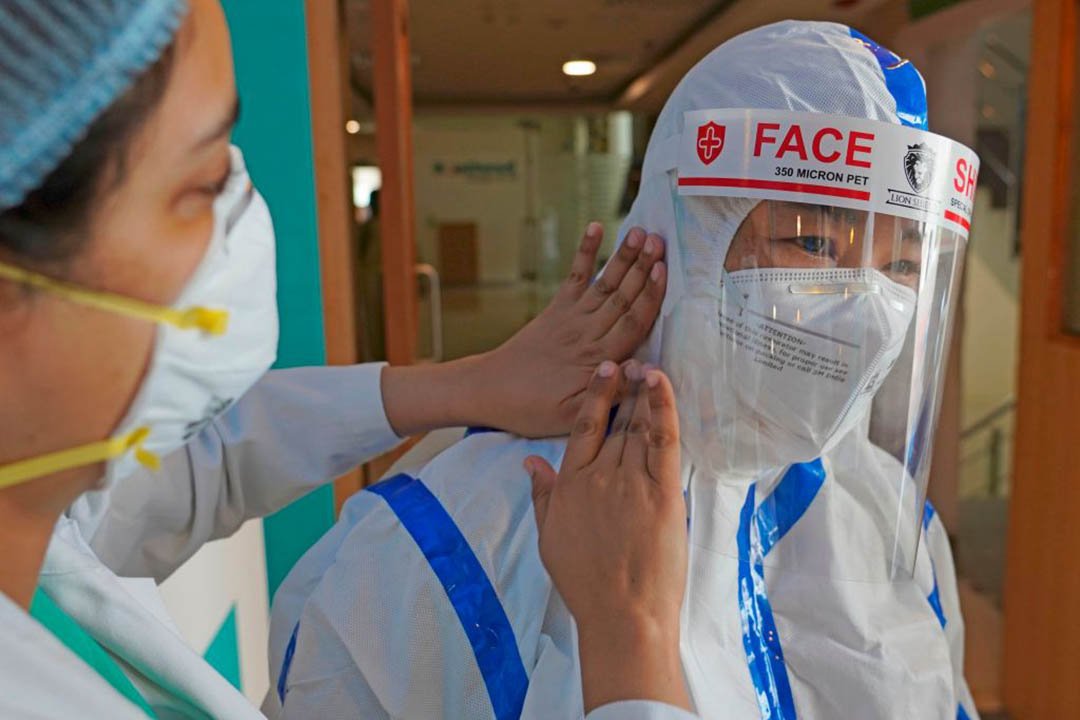Scientists Concerned ‘Centaurus’ Could Drive Next COVID-19 Wave
ADF STAFF
A strain of COVID-19 circulating in nearly two dozen countries has scientists concerned that it may be the next mutation to spread globally after the BA.5 strain of omicron.
The strain, officially known as BA.2.75, has been dubbed “Centaurus” on social media. It is an offshoot of the omicron variant and has similar characteristics, such a high transmissibility.
The World Health Organization has classified BA.2.75 as a variant of concern that it is monitoring.
While testing rates for COVID-19 have fallen sharply, Centaurus accounts for about two-thirds of new reported cases in India, according to evolutionary biologist Tom Wenseleers of the Catholic University of Leuven, Belgium, who has tracked the rise of the variant.
Centaurus currently has more than 30 mutations on its spike protein that distinguishes it from the original version of COVID-19. Spike proteins are the “keys” the virus uses to unlock cells so it can replicate inside them.
“This would definitely cause an infection wave,” Wenseleers told Nature.
In India, Centaurus is showing a strong ability to outcompete BA.5 but has sent few people in India to the hospital so far.
Outside of India, Centaurus has a small footprint compared to BA.5, which accounts for 88% of all new cases globally, according to the U.S. Centers for Disease Control and Prevention.
Animal testing has shown that Centaurus has a larger impact on the lungs than BA.5 or its BA.2 predecessor. In that respect, Centaurus behaves similarly to the delta variant.
For scientists, the question is whether Centaurus will eventually take over from BA.5 in the way the delta variant, which also first became dominant in India, swept the beta variant aside in much of the world.
Scientists are divided on that question.
A study by researchers at Kobe University in Japan found that Centaurus has two advantages over its competitors: The virus’s mutations make it better at attaching itself to cells and it has enough mutations to make it more difficult for the body’s defenses to recognize it as a threat and rally against it.
“Our results indicate that Omicron BA.2.75 has a greater risk to global health than the other ten variants and there is a need for paying close attention to the infections trends of Omicron BA.2.75,” the Japanese researchers wrote in a paper uploaded to the preprint server biorxiv.org.
According to researchers at the Karolinska Institute in Sweden, Centaurus exhibits levels of antibody resistance similar to BA.5, which is good news for people with high levels of immunity either from recent natural infections or from medication.
That suggests that Centaurus may not become a significant threat globally unless it develops more mutations, according to researchers.
Virologist Shahid Jameel of Oxford University in the United Kingdom believes the similarities between Centaurus and BA.5 will effectively cancel each other out.
“We’re coming to a point where these variants are sort of competing with each other and they’re almost equivalent,” Jameel told Nature. He said he thinks that people who have had BA.5 will not have breakthrough infections with BA.2.75, nor would someone who had B.A.2.75 have a breakthrough infection with B.A.5.


Comments are closed.